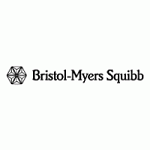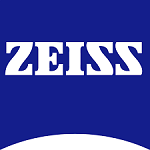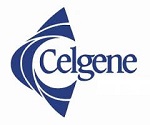Team Development
Accredited Consulting Service for Ms. Matteson BS Accredited Senior Consultant (ASC)
Executive Summary Video
The Appleton Greene Accredited Consultant Service (ACS) for Team Development is provided by Ms. Matteson and provides clients with four cost-effective and time-effective professional consultant solutions, enabling clients to engage professional support over a sustainable period of time, while being able to manage consultancy costs within a clearly defined monthly budget. All service contracts are for a fixed period of 12 months and are renewable annually by mutual agreement. Services can be upgraded at any time, subject to individual client requirements and consulting service availability. If you would like to place an order for the Appleton Greene Team Development service, please click on either the Bronze, Silver, Gold, or Platinum service boxes below in order to access the respective application forms. A detailed information guide for this service is provided below and you can access this guide by scrolling down and clicking on the tabs beneath the service order application forms.
Bronze Client Service
Monthly cost: USD $1,500.00
Time limit: 5 hours per month
Contract period: 12 months
SERVICE FEATURES
Bronze service includes:
01. Email support
02. Telephone support
03. Questions & answers
04. Professional advice
05. Communication management
To apply – CLICK HERE

Silver Client Service
Monthly cost: USD $3,000.00
Time limit: 10 hours per month
Contract period: 12 months
SERVICE FEATURES
Bronze service plus
01. Research analysis
02. Management analysis
03. Performance analysis
04. Business process analysis
05. Training analysis
To apply – CLICK HERE
Gold Client Service
Monthly cost: USD $4,500.00
Time limit: 15 hours per month
Contract period: 12 months
SERVICE FEATURES
Bronze/Silver service plus
01. Management interviews
02. Evaluation and assessment
03. Performance improvement
04. Business process improvement
05. Management training
To apply – CLICK HERE
Consultant profile
Ms. Matteson is an approved Senior Consultant at Appleton Greene and she has experience in management, finance and human resources. She has achieved a Bachelor of Science, is a Board Certified Coach and is an Adjunct Consultant. She has industry experience within the following sectors: Pharmaceutical; Biotechnology; Manufacturing; Healthcare and Chemicals. She has had commercial experience within the following countries: United States of America, or more specifically within the following cities: Princeton NJ; Philadelphia PA; Minneapolis MN; Wilmington NC and Boston MA; and. Her personal achievements include: design & conduct team development workshops; coach executives to reach goals; shape corporate culture change; improve team performance and relationships and facilitate vision and mission statements. Her service skills incorporate: team development; executive coaching; expert facilitation; performance management and management training.
To request further information about Ms. Matteson through Appleton Greene, please CLICK HERE.
Executive summary
Team Development
Team development can be stated as the action or process of causing a group of people to work together effectively as a team, especially by means of activities and events designed to increase motivation and promote cooperation. For twenty years, Ms. Matteson has been working with teams to do just that—successfully increasing motivation and promoting cooperation and improving performance amongst hundreds of teams. Whether a team is in the forming, storming, norming or performing stages, Ms. Matteson provides tools and techniques to get to the next level. Team building is one of the foundations of organizational development that can be applied to groups such as project teams, leadership teams, intact teams, cross-functional teams, and virtual teams. Team building is one of the most widely used group-development activities in organizations today. Of all organizational activities, one study found team-development to have the strongest effect (versus financial measures) for improving organizational performance. Recent meta-analyses show that team-development activities, including team building and team training, improve both a team’s objective performance and a team’s subjective ratings. Our services for teams vary as much as the teams with which we work. It is our philosophy that there is no off-the-shelf teambuilding program that will fill all the needs of any given team, yet there is a process that we follow that allows us to provide the most effective tools and exercises to address a number of needs. Often, there is disagreement in understanding the priorities for developing a team. Whether a team is in the forming, storming, norming or performing stage, we offer experiences to help them get to the next level. Some team leaders are concerned with such problems as improving workflow, setting priorities or holding more effective meetings. Others see the prime purpose of teambuilding as improving relationships between team members. Whatever the presenting issue is, we work closely with team leaders and team members to diagnose the true issues and coach them and their team to success. We also know that team leaders provide one perspective and team members provide another. We gather as much data as possible both from team leaders and team members prior to conducting a session.
Almost all team building efforts must do the following: 1) Set goals or priorities (including mission and vision), 2) analyze or allocate the way work is performed (role clarification), 3) examine the way a group is working, its processes such as decision making and norms, and 4) examine the relationships among the people doing the work. Our services are for teams in any stage of formation. For example, an existing team gets a new leader or key team member, a new team is being formed, a team is experiencing difficulty in meeting its goals, a team with interpersonal conflicts, a team that just needs a boost, and many other scenarios.
Service Methodology
From the first client interaction to the final close of a project, our service and methodology is tailored, client-focused, responsive, efficient and effective. Often, there is disagreement in understanding the priorities for developing a team. We work closely with team leaders and team members in diagnosing the major issues and coaching them along the way. Our methodology starts with the team leader and expands to the team members to assess, understand, and diagnose the situation before recommending any action. It starts with an in-depth interview of the team leader and other key stakeholders and progresses to interviews of each team member. Once the data is analyzed and the diagnosis is complete, it is shared with the team leader and key stakeholders for discussion and alignment. Key objectives for the team are then formulated and a strategy set to achieve them. Our recommendations can be as lofty as establishing the vision and mission for a team, to tactical in terms of how to run effective team meetings. The content is totally dependent on the assessment and diagnosis. The outcome of our programs are teams that want to be accountable and work together in an atmosphere of trust and accountability toward a common goal. They put aside turf issues and politics and focus on the tasks to be done. This keen focus overcomes barriers, helps to identify opportunities and builds a momentum that leads to three bottom-line benefits: better problem solving, greater productivity and more effective use of resources. Key follow up activities are documented with champions and timelines.
Service Options
Companies can elect whether they just require Appleton Greene for advice and support with the Bronze Client Service, for research and performance analysis with the Silver Client Service, for facilitating departmental workshops with the Gold Client Service, or for complete process planning, development, implementation, management and review, with the Platinum Client Service. Ultimately, there is a service to suit every situation and every budget and clients can elect to either upgrade or downgrade from one service to another as and when required, providing complete flexibility in order to ensure that the right level of support is available over a sustainable period of time, enabling the organization to compensate for any prescriptive or emergent changes relating to: Customer Service; E-business; Finance; Globalization; Human Resources; Information Technology; Legal; Management; Marketing; or Production.
Service Mission
Ms. Matteson is a seasoned team and executive coach that has successfully helped hundreds of teams to improve their performance at the Fortune 200 and beyond. With extensive experience working with senior leadership teams, Suzanne can identify opportunities for team and organizational improvement and design interventions to increase team results. With years of experience working mostly in pharmaceutical and biotech organizations in an ever changing environment, Suzanne brings a valued perspective and a wide array of skills to the table. Through team consulting engagements, coaching, corporate training, culture and change management work, Suzanne helps individuals and teams to accelerate their performance and build organizational capacity, preparing corporations for sustainable success in the rapidly changing 21st century.
Service objectives
The following list represents the Key Service Objectives (KSO) for the Appleton Greene Team Development service.
- Needs Assessment
The first step in any team development program is a thorough assessment of the needs of any given team in order to determine whether a team development intervention is the proper service. An in-depth discussion with key stakeholders takes place garnering facts, history, an understanding of objectives, current state and desired state of the situation and outcome goals. If it is determined that a team development process will help the situation, we move on to the next step of data collection. If it is determined that this is not the case, we consult with the client to discuss possible other options and alternatives. Questions might include: describe the situation as you see it today, in your opinion, what are the major factors influencing the situation, what would you like to see different, how has the team achieved or not achieved results, what are your two to three most important outcome goals, what would success look like, what keeps you up at night when you think about this situation? This discussion may take place with one or more individuals. - Data Collection
Assuming that it has been determined that a team intervention is part of an appropriate solution for the situation, further data is collected by conducting interviews of all or a subsection of team members. It is critical to gather different perspectives and frequently the responses vary greatly in the description of the team’s performance, relationships and productivity. We set the stage for a confidential, productive discussion by establishing rapport, describing our service, eliciting information about the person being interviewed, and answering any questions they have before we begin. The same set of questions is asked of each team member and the results are presented anonymously when the team development sessions take place. Questions that may be asked are the following: What is going well with the team? What are the team’s Strengths? What is not going as well with the team? What are the team’s Developmental Areas? What has been the impact of having a new leader/new team member on the team? What are the Barriers and Obstacles that prevent the team from doing the kind of work it should be doing? What is the team not doing that it should be doing? (Where are you missing out on an opportunity to have an impact?) What is the team doing that it should not be doing? (What are you doing that is unnecessary?) What can you accomplish as the XYZ Leadership Team? How would you describe the communication and effectiveness between team members, other involved parties and with the larger organization? How would you describe the level of trust between team members? What suggestions do you have for how the team can function more effectively? What would you like to see team leader do differently? The interviews close with an open ended questions to determine if there is anything else the person would like to share with us in a confidential manner. - Analysis & Goals
Key points from the interviews are transcribed, summarized and presented to the major stakeholders in the team development process in order to determine the focus for the sessions. Each question is carefully analyzed and reported back. A discussion is held about each question and the implications of the responses. This discussion is usually enlightening for the team leader and other key team members and sheds light on the performance of the team. An in-depth discussion then takes place to determine what tools, exercise, discussions and other interventions will be most appropriate based upon the situation, interview results and outcome goals. We agree on two to three outcome goals as focus is critical in these events. Some outcome goals could be: establishing a common purpose or vision for the team, improving communication and trust between team members, ensuring clear roles exist between team members, establishing agreements for how to resolve conflict in the team, identifying the stage of development the team is in and how to get to the next level, ensuring mutual accountability exists on the team, and improving problem solving and decision making. Based upon the outcome goals selected, we determine the topics to be covered and a preliminary agenda to assess the amount of time to devote to the first session. Typically, a day and a half to two days is the time allotted to kick off the team development process for any given team. Six month follow up sessions then occur to test for progress, make any adjustments and cover additional topics or issues. - Program Design
Now that the data has been collected, analyzed and discussed and it has been determined that a team development session(s) should be developed and the outcome goals and timing have been set, process/program design begins. Working with our client(s), we discuss the pros and cons of various exercises to address the outcome goals. Every company culture is different and some exercises may work well in some environments and not in others, e.g., physical, experiential challenges. The definition we use for Real Team, taken from the Wisdom of Teams, is “A number of people with complementary skills who are committed to a common purpose, performance goals and approach for which they hold themselves mutually accountable.” In all sessions, we discuss this definition and evaluate where the team is in terms of its development. Are they a Real Team, a Potential Team, a Pseudo Team, or a High Performing Team and what do they need to do to get to the next level or maintain their performance. We work hard to tailor our programs so that they will best meet the needs of the individuals, cultures and achieve the desired outcome goals. Very often, a personality assessment will be recommended and again, which type varies with our different clients. Two that are used frequently are the MBTI (Myers-Briggs Type Inventory) and DISC. In our experience, the two instruments are similar, yet different. What they both provide is the ability for team members to understand themselves better as well as their fellow teammates and flex their style to better communicate and work with others. Other instruments that can be used are the FIRO-B, or Thomas Kilman Conflict Instrument. A typical design phase consists of thinking through different exercises, instrumentation and discussions to achieve the agreed upon outcome goals. This could include how to integrate a new leader or new team members, clarifying expectations and making agreements for how the team will operate, solving a simulated disaster, understanding different personality styles and/or different conflict styles and how to hold each other mutually accountable for the success of the team. - Implementation & Facilitation
A typical start to a team development process is a 1.5-2.0 day session with all team members present. It is recommended that this session take place off-site in order to minimize distractions from the work place. There are a number of kick-off issues that are covered including objectives, ground rules for the session, belief cycle, roles of facilitator and team members, expectations from team members and an introduction from the team leader describing the process and agenda. The sessions are always highly participative and get team members involved in discussions and exercises early on. The results of the interviews that each person participated in are shared and robust discussions begin. Typically there are issues/challenges/opportunities that arise from these discussions and they are noted on a Parking Lot list. After going through the planned exercises (and often there may be unplanned exercises or discussions), additional issues arise that need action. At the end of the session we form Accountability Teams to address those issues. The topic of Accountability is covered and initial plans put in place for the Accountability teams to take their issue forward. Team members can choose the topic(s) for which they have the most interest to help ensure the topic will be addressed. Follow up meetings are held on a regular basis with or without the help of the facilitator. At a minimum, however at the 6 month point when the team comes together again, the progress of these teams is presented and any hurdles or obstacles discussed and solved for. The value and timing of ongoing face to face or telephonic sessions is discussed and negotiated at this point. Frequently, we are asked to do annual follow up sessions with teams with whom we work as so much can change in a year, e.g., team members, team leaders and goals for the team.
Testimonials
Major Biopharma Company
“Thank you once again for facilitating a very productive introductory leader integration with my new leadership team. I find the summary you put together to be reflective of the dialogue and want you to know that after the session the team was very complimentary of you as well as shared with me that they found the session of value and look forward to continued work with you (as the team) on this subject”. – Head Field Medical
Manufacturing Company
“Wayne told me what a great job you did for him and his team. He was very happy and extremely impressed. He’s never seen such strong teambuilding … yeah for you and us!!!!” – VP, Human Resources
Major Pharmaceutical Company
“I have worked with Ms. Matteson for 12 years while in three different positions. She has helped my leadership teams and me to design and shape the culture of each organization, including our vision, mission and values. She has also helped to strengthen the teams by facilitating various team and leadership development modules. She has been an excellent advisor to me and acts as a sounding board for almost everything I do from an organization development standpoint. Ms. Matteson is an excellent listener, asks thought provoking questions and frequently thinks of things that I had not considered. I highly recommend her.”– Senior Vice President, Global Medical Affairs
World-Leading Technology Firm
“Many thanks for customizing the teambuilding workshop for our team. You facilitated a highly productive session, and taught us what we need to know to make further progress on our own. And, your skill in adapting the agenda on the fly was put to great use!” – Vice President, Information Technology
Pharmaceutical Company
“I am living proof of the benefits of Ms. Matteson’s executive coaching. In addition to being more effective in my present role, I am significantly more motivated to continue my career with my current employer.” – Senior Executive
More detailed achievements, references and testimonials are confidentially available to clients upon request.
Industries
This service is primarily available to the following industry sectors:
Pharmaceuticals
The pharmaceutical industry develops, produces, and markets drugs or pharmaceuticals licensed for use as medications. Pharmaceutical companies are allowed to deal in generic or brand medications and medical devices. Most recently, the industry has become increasingly competitive both from a product and access standpoint. They are subject to a variety of laws and regulations regarding the patenting, testing and ensuring safety and efficacy and marketing of drugs. Drug companies are like other companies in that they manufacture products that must be sold for a profit in order for the company to survive and grow. They are different from some companies because the drug business is very risky. For instance, only one out of every ten thousand discovered compounds actually becomes an approved drug for sale. Much expense is incurred in the early phases of development of compounds that will not become approved drugs. In addition, it takes about 7 to 10 years and only 3 out of every 20 approved drugs bring in sufficient revenue to cover their developmental costs, and only 1 out of every 3 approved drugs generates enough money to cover the development costs of previous failures. This means that for a drug company to survive, it needs to discover a blockbuster (billion-dollar drug) every few years. Industry-wide research and investment has reached a record $65.3 billion. While the cost of research in the U.S. is about $34.2 billion, revenues rose by $200.4 billion. A study by the consulting firm Bain & Company reported that the cost for discovering, developing and launching (which factored in marketing and other business expenses) a new drug (along with the prospective drugs that fail) rose over the last five years to nearly $1.7 billion. According to Forbes, development costs are between $4 billion to $11 billion per drug. The United States accounts for more than a third of the global pharmaceutical market, with $340 billion in annual sales followed by the EU and Japan. Emerging markets such as China, Russia, South Korea and Mexico outpaced that market, growing at a huge 81 percent. According to IMS the global pharmaceutical industry is estimated at US$1.1 trillion.
Biotechnology
Biotechnology is the use of living systems and organisms to develop or make useful products, or any technological application that uses biological systems, living organisms or derivatives thereof, to make or modify products or processes for specific use. For thousands of years, humankind has used biotechnology in agriculture, food production, and medicine. Biotechnology has applications in four major industrial areas, including health care (medical), crop production and agriculture, non-food (industrial) uses of crops and other products (e.g. biodegradable plastics, vegetable oil, biofuels), and environmental uses. The biotechnology market consists of the development, manufacturing, and marketing of products based on advanced biotechnology research. The practice of biotechnology has been used by humans for centuries, however it wasn’t until 1996 that the first biologics (the products of biotechnology) were approved by the U.S. Food and Drug Administration (FDA), and over 120 biologics have been approved since then. Biotech companies are integrating the sciences and bringing new perspectives from various fields such as chemistry, biochemistry, and genetics to tackle biomedical questions. Success in developing a new biotechnology product requires years of work and successful interaction among chemists, biologists, crystallographers, molecular modeling specialists, and other scientists to develop effective solutions to today’s complex problems. The global biotechnology market has total revenues of $304.0bn, representing a compound annual growth rate (CAGR) of 9.6%. The medical/healthcare segment is the market’s most lucrative, with total revenues of $182.5bn, equivalent to 60.0% of the market’s overall value. The performance of the market is forecast to decelerate, with an anticipated CAGR of 9%, which is expected to drive the market to a value of $468.2bn.
Chemicals
The chemical industry creates an immense variety of products which impinge on virtually every aspect of our lives. While many of the products from the industry, such as detergents, soaps and perfumes, are purchased directly by the consumer, 70% of chemicals manufactured are used to make products by other industries including other branches of the chemical industry itself. The industry uses a wide range of raw materials, from air and minerals to oil. With increasing competition worldwide, innovation remains crucial in finding new ways for the industry to satisfy its increasingly sophisticated, demanding and environmentally-conscious consumers. The industry comprises the companies that produce industrial chemicals. Central to the modern world economy, it converts raw materials (oil, natural gas, air, water, metals, and minerals) into more than 70,000 different products. In the U.S. there are 170 major chemical companies. They operate internationally with more than 2,800 facilities outside the U.S. and 1,700 foreign subsidiaries or affiliates operating. The U.S. chemical output is $750 billion a year. The U.S. industry records large trade surpluses and employs more than a million people in the United States alone. The chemical industry is also the second largest consumer of energy in manufacturing and spends over $5 billion annually on pollution abatement. In Europe the chemical, plastics and rubber sectors are among the largest industrial sectors. Together they generate about 3.2 million jobs in more than 60,000 companies. Historically and presently the chemical industry has been concentrated in three areas of the world, Western Europe, North America and Japan. The European Community remains the largest producer area followed by the USA and Japan.
Manufacturing
Manufacturing is the production of merchandise for use or sale using labor and machines, tools, chemical and biological processing, or formulation. In a free market economy, manufacturing is usually directed toward the mass production of products for sale to consumers at a profit. In a collectivist economy, manufacturing is more frequently directed by the state to supply a centrally planned economy. In mixed market economies, manufacturing occurs under some degree of government regulation. Modern manufacturing includes all intermediate processes required for the production and integration of a product’s components. Some industries, such as semiconductor and steel manufacturers use the term fabrication instead. The manufacturing sector is closely connected with engineering and industrial design. According to some economists, manufacturing is a wealth-producing sector of an economy, whereas a service sector tends to be wealth-consuming. Emerging technologies have provided some new growth in advanced manufacturing employment opportunities in the Manufacturing Belt in the United States. Manufacturing provides important material support for national infrastructure and for national defense. On the other hand, most manufacturing may involve significant social and environmental costs. The clean-up costs of hazardous waste, for example, may outweigh the benefits of a product that creates it. Hazardous materials may expose workers to health risks. These costs are now well known and there is effort to address them by improving efficiency, reducing waste, using industrial symbiosis, and eliminating harmful chemicals. The increased use of technologies such as 3D printing also offer the potential to reduce the environmental impact of producing finished goods through distributed manufacturing.
Healthcare
The health care industry, or medical industry, is an aggregation of sectors within the economic system that provides goods and services to treat patients with curative, preventive, rehabilitative, and palliative care and is one of the fastest growing fields in the world today. The modern health care industry is divided into many sectors and depends on interdisciplinary teams of trained professionals and paraprofessionals to meet health needs of individuals and populations. Consuming over 10 percent of gross domestic product (GDP) of most developed nations, health care can form an enormous part of a country’s economy. For purpose of finance and management, the health care industry is typically divided into several areas. As a basic framework for defining the sector, the United Nations International Standard Industrial Classification (ISIC) categorizes the health care industry as generally consisting of: hospital activities; medical and dental practice activities; “other human health activities”. The Global Industry Classification Standard and the Industry Classification Benchmark further distinguish the industry as two main groups: health care equipment and services; and pharmaceuticals, biotechnology and related life sciences. Health care equipment and services comprise companies and entities that provide medical equipment, medical supplies, and health care services, such as hospitals, home health care providers, and nursing homes. The second industry group comprises sectors companies that produce biotechnology, pharmaceuticals, and miscellaneous scientific services. The global medical device industry has experienced significant growth over the last five years and is expected to continue, reaching approximately US $302 billion with a CAGR of 6.1% during the next five years. The medical device industry is comprised of surgical, cardiovascular, home healthcare, general medical and other devices. The industry is highly fragmented, and North America dominates with 46% of the global market. High competitive rivalry prevails with low to moderate barrier for entry into the industry. The aging population and growing demand for convenient and cost-effectiveness products are expected to drive the global home healthcare device industry, and the home healthcare device market is expected to reach an estimated US $29 billion with a CAGR of 3.4% over the next five years. A combination of factors such as technological innovations, aging population, rising patient pool, and changing lifestyle is seen to impact the market dynamics significantly.
Locations
This service is primarily available within the following locations:
Princeton NJ
Princeton is a municipality with a borough form of government in Mercer County, New Jersey, United States, that was established in its current form on January 1, 2013, through the consolidation of the Borough of Princeton and Princeton Township. As of the 2010 United States Census, the municipality’s population was 28,572, reflecting the former township’s population of 16,265, along with the 12,307 in the former borough. Princeton was founded before the American Revolution and is best known as the location of Princeton University, located in the community since 1756. Although its association with the university is primarily what makes Princeton a college town, other important institutions in the area include the Institute for Advanced Study, Westminster Choir College, Princeton Plasma Physics Laboratory, Princeton Theological Seminary, Opinion Research Corporation, Bristol-Myers Squibb, Siemens Corporate Research, SRI International, FMC Corporation, The Robert Wood Johnson Foundation, Amrep, Church and Dwight, Berlitz International, and Dow Jones & Company. Princeton University is a dominant feature of the community. Its main campus has its historic center on Nassau Street in the borough and stretches south into the township. Its James Forrestal satellite campus is located in Plainsboro Township, and some playing fields lie within adjacent West Windsor Township. The Princeton campus is known for having Albert Einstein lecture as well as being one of the original seven Ivy League schools. Westminster Choir College, the renowned school of music presently owned by Rider University, established in Princeton in 1932. The Institute for Advanced Study is in the borough and maintains extensive land holdings (the “Institute Woods”) there. Bristol-Myers Squibb is a client of Ms. Matteson’s.
Philadelphia PA
Philadelphia is the largest city in the Commonwealth of Pennsylvania and the fifth-most populous city in the United States, with an estimated population of more than 1.5 million and more than 6 million in the seventh-largest metropolitan statistical area, as of 2015. Philadelphia is the economic and cultural anchor of the Delaware Valley—a region located in the North eastern United States at the confluence of the Delaware and Schuylkill Rivers with 7.2 million people residing in the eighth-largest combined statistical area in the United States. Philadelphia is the center of economic activity in Pennsylvania with the headquarters of seven Fortune 1000 companies located within city limits. According to the Bureau of Economic Analysis, the Philadelphia area had a total gross metropolitan product of $347 billion in 2010, the seventh-largest metropolitan economy in the United States Philadelphia was rated by the GaWC5 as an ‘Alpha- City’ in its categorization of world cities. Philadelphia’s economic sectors include information technology, manufacturing, oil refining, food processing, health care, biotechnology, tourism, and financial services. Financial activities account for the largest sector of the metropolitan area’s economy, and it is one of the largest health education and research centers in the United States. The city is home to the Philadelphia Stock Exchange and some of the area’s largest companies including cable television and internet provider Comcast, insurance companies Colonial Penn, CIGNA, Independence Blue Cross, energy company Sunoco, food services company Aramark and Crown, chemical makers Rohm and Haas and FMC, pharmaceutical company GlaxoSmithKline, Boeing Rotorcraft Systems, and automotive parts retailer Pep Boys. Over the years, Ms. Matteson has worked for several companies in the Philadelphia area, most notably FMC.
Minneapolis MN
Minneapolis is the larger of the Twin Cities, in Minnesota. With a population of nearly 4 million, it is the 16th-largest metropolitan area in the United States. As of 2015, had a population of 410,939 within the city proper. Minneapolis and Saint Paul anchor the second-largest economic center in the Midwest, after Chicago. The economy of Minneapolis today is based in commerce, finance, rail and trucking services, health care, and industry. Smaller components are in publishing, milling, food processing, graphic arts, insurance, education, and high technology. Industry produces metal and automotive products, chemical and agricultural products, electronics, computers, precision medical instruments and devices, plastics, and machinery. The city at one time produced farm implements. Five Fortune 500 corporations make their headquarters within the city limits of Minneapolis: Target, U.S. Bancorp, Xcel Energy, Ameriprise Financial and Thrivent Financial. As of 2015 the city’s largest employers downtown are Target, Wells Fargo, HCMC, Hennepin County, Ameriprise, U.S. Bancorp, Xcel Energy, City of Minneapolis, RBC Wealth Management, the Star Tribune, Capella Education Company, Thrivent, CenturyLink, ABM Industries, and the Federal Reserve Bank of Minneapolis. Foreign companies with U.S. offices in Minneapolis include Accenture, Bellisio Foods (now part of Charoen Pokphand Foods), Canadian Pacific, Coloplast, RBC, and Voya Financial. Zeiss Industrial Metrology, one of Ms. Matteson’s clients is located in a suburb of Minneapolis.
Wilmington NC
Wilmington is a port city and the county seat of New Hanover County in coastal south-eastern North Carolina, United States. The population is 112,067; according to the 2010 Census it is the eighth most populous city in the state. Wilmington is the principal city of the Wilmington Metropolitan Statistical Area, a metropolitan area that includes New Hanover and Pender counties in south-eastern North Carolina, which has a population of 263,429 as of the 2012 Census Estimate. Wilmington’s industrial base includes electrical, medical, electronic and telecommunications equipment; clothing and apparel; food processing; paper products; nuclear fuel; and pharmaceuticals. Wilmington is part of North Carolina’s Research coast, adjacent to the Research Triangle Park in Durham, NC. Located on the Cape Fear River, which flows into the Atlantic Ocean, Wilmington is a sizable seaport, including private marine terminals and the North Carolina State Ports Authority’s Port of Wilmington. Wilmington is home to the Greater Wilmington Chamber of Commerce, the oldest Chamber in North Carolina, organized in 1853. Companies with their headquarters in Wilmington include Live Oak Bank and HomeInsurance.com. Top employers include General Electric, University of North Carolina Wilmington, Pharmaceutical Product Development, and Corning. Ms. Matteson hopes to relocate to this area in the near future.
Boston MA
Boston is the capital and most populous city of the Commonwealth of Massachusetts in the United States. The city proper covers 48 square miles or 124 km2 with an estimated population of 667,137 in 2015, making it the largest city in New England and the 23rd most populous city in the United States. The city is the economic and cultural anchor of a substantially larger metropolitan area known as Greater Boston, a Metropolitan Statistical Area (MSA) home to a census-estimated 4.7 million people in 2014 and ranking as the tenth-largest such area in the country. Alternately, as a Combined Statistical Area (CSA), this wider commuting region is home to some 8.1 million people, making it the sixth-largest as such in the United States. A global city, Boston is placed among the top 30 most economically powerful cities in the world. Encompassing $363 billion, the Greater Boston metropolitan area has the sixth-largest economy in the country and 12th-largest in the world. Boston’s colleges and universities exert a significant impact on the regional economy. Boston attracts more than 350,000 college students from around the world, who contribute more than $4.8 billion annually to the city’s economy. The area’s schools are major employers and attract industries to the city and surrounding region. The city is home to a number of technology companies and is a hub for biotechnology, with the Milken Institute rating Boston as the top life sciences cluster in the country. Boston receives the highest absolute amount of annual funding from the National Institutes of Health of all cities in the United States. The city is considered highly innovative for a variety of reasons, including the presence of academia, access to venture capital, and the presence of many high-tech companies. The Route 128 corridor and Greater Boston continue to be a major center for venture capital investment, and high technology remains an important sector. This is an area that Ms. Matteson plans to target in her practice.
Clients
This service’s current clients or employers include:
Bristol-Myers Squibb
Bristol-Myers Squibb is a differentiated company, led by its unique BioPharma strategy that leverages the reach and resources of a major pharma company paired with the entrepreneurial spirit and agility of a biotech firm. They work every day to deliver innovative medicines for patients with serious and life-threatening diseases. They strive to make innovative, effective medicines available to the patients who need them, and to treat their customers and employees with dignity and respect. To meet their mission of helping patients to prevail over serious diseases, they are committed to developing a 21st century workforce that is powerfully diverse and broadly inclusive, capable of discovering and developing important new medicines for patients around the world. They view diversity in the broadest sense – including age, ethnicity, race, culture, gender, gender identity and expression, sexual orientation, abilities and disabilities, religion, socioeconomic background, veteran status, thinking styles, and life experiences, among other differences. Through a culture of inclusion, they create an agile and responsive work environment where the diverse experiences and perspectives of all employees help to drive their innovation and transformative business results. They have been a client of Ms Matteson’s for five years now. Her work there has been in the team development and executive coaching space. Each day, their employees around the world work together for patients – it drives everything they do. They are focused on helping millions of patients around the world in disease areas such as oncology, cardiovascular, immunoscience and fibrosis. Through their R&D organization, they have built a sustainable pipeline of potential therapies, and actively partner to access external innovation to broaden and accelerate our work. As global citizens, they work sustainably, responsibly and seek to give back. Through the Bristol-Myers Squibb Foundation, they promote health equity and strive to improve health outcomes of populations disproportionately affected by serious diseases and conditions, giving new hope to some of the world’s most vulnerable people.
Bristol-Myers Squibb – Click Here
Zeiss Group
ZEISS is an internationally leading technology enterprise of the optical and optoelectronic industry. The ZEISS Group develops and distributes semiconductor manufacturing equipment, measuring technology, microscopes, medical technology, eyeglass lenses, camera and cine lenses, binoculars and planetarium technology. With its solutions, the company constantly advances the world of optics and helps shape technological progress. The Group emerged from a workshop for precision mechanics and optics established by company founder Carl Zeiss in Jena (Thuringia) in 1846. Today, ZEISS is headquartered in Oberkochen (Baden-Württemberg). The broad portfolio of the ZEISS Group encompasses six business groups and various strategic business units in four segments. The units develop, produce and distribute optical systems such as lithography systems, industrial measuring technology, microscopes, surgical microscopes, ophthalmic diagnostic and therapy systems, eyeglass lenses, planetarium technology, cine and camera lenses, as well as binoculars, riflescopes and spotting scopes. Carl Zeiss AG manages the Group in its role as a strategic holding company. Its primary function is the ongoing strategic development of the business activities and of the corporate portfolio. It also provides the corporate management and service functions. Carl Zeiss Inc. and many of its businesses in the United States have been a client of Ms. Matteson for over twenty years (one of her first and continuing clients). She has worked tirelessly with them to build teams in most of their businesses, shape corporate culture, design and conduct Leadership Development and Performance Management programs and provide 360 feedback and executive coaching. She is well known and highly trusted within the Zeiss US community and is welcomed at every Zeiss location.
Celgene
Celgene Corporation is a global integrated biopharmaceutical company primarily engaged in the discovery, development and commercialization of innovative therapies designed to treat cancer and immune-inflammatory related diseases in patients with limited treatment options. There are hundreds of clinical trials at major medical centers evaluating compounds from Celgene. Investigational compounds are being studied for patients with incurable haematological and solid tumor cancers, including multiple myeloma (MM), myelodysplastic syndromes (MDS), chronic lymphocytic leukaemia (CLL), non-Hodgkin’s lymphoma (NHL), pancreatic cancer, non-small lung cancer and melanoma. In addition, several compounds are being evaluated as therapies for serious inflammatory diseases such as psoriasis and psoriatic arthritis. At Celgene, they seek to deliver truly innovative and life-changing drugs for patients. Their vision as a company is to build a major global biopharmaceutical corporation while focusing on the discovery, the development, and the commercialization of products for the treatment of cancer and other severe, immune, inflammatory conditions. What is it that defines Celgene? Is it their unique products and innovative approach to treating disease? Is it their cutting-edge research addressing a broad range of conditions? Their growing reputation as an important contributor to medical progress? Their commitment to healthcare providers and compassion for their patients? While each of these factors contributes in significant ways to what Celgene is, they represent only part of the story. Most fundamentally, Celgene is its employees, who are focused on the single mission of delivering innovative therapies to patients with unmet medical needs in cancer and inflammatory diseases. They are a varied group of talented people, including Ph.D. bench scientists, sales representatives, manufacturing engineers, information technology professionals, clinical research physicians, lab technicians, marketing professionals, regulatory experts, accounting and finance personnel, clinical coordinators, senior executives, human resource managers, nurses and pharmacists. As different as each of these positions and the individuals who hold them are, they are united in their commitment to discover, develop and market life-enhancing drugs that make a measurable difference in the lives of millions of people. Ms Matteson has been engaged with Celgene for 3 years working with multiple teams in the Information Technology and Market Access space.
Daiichi Sankyo
As the U.S. subsidiary of a global pharmaceutical innovator, Daiichi Sankyo, Inc. draws on a rich heritage of innovation, integrity and accountability. While the success of their medicines speaks for itself, their corporate mission defines their vision and purpose: To enrich quality of life around the world through the development of innovative pharmaceuticals. How do they bring this corporate mission to life? By bringing together medical and scientific expertise, a collaborative and ethical culture, and a robust pipeline. At Daiichi Sankyo, innovation is more than a corporate motto. It’s a philosophy they put into practice each and every day. Established in 2006 by the merger of two 100-year-old Japanese pharmaceutical companies, Daiichi Sankyo, Inc. inherited a rich legacy of innovation and scientific expertise across therapeutic categories. Today, they are just as dedicated to improving quality of life for the patients who need medicines as their founders were a century ago. Their scientific expertise, robust pipeline and collaborative and ethical culture make a world of difference in the lives of patients and employees, and in the communities where they live and work. Ms. Matteson has worked with Daiichi Sankyo in the United States for more than five years. Most of her work has been within the Clinical Development Operations space where she has conducted team facilitation and executive coaching at the senior level.
Benefits
Management
- Vision & mission
- Shaping culture
- Performance optimization
- Global alignment
- Recource alignment
- Talent assessment
- Department integration
- Process improvement
- Business sustainability
- Business growth
Human Resources
- Team effectiveness
- Accountable employees
- Learning & development
- Engaged employees
- Focused attention
- Strong morale
- Employee commitment
- Knowledge sharing
- Constructive feedback
- Improved performance
Production
- Streamlined operation
- Effective teams
- Increased output
- Reduced cost
- Improved efficiency
- Collaborative employees
- Department alignment
- Simplified process
- Improved product
- Greater reliability
Bronze Service
Monthly cost: USD $1,500.00
Time limit: 5 hours per month
Contract period: 12 months
Bronze service includes:
01. Email support
02. Telephone support
03. Questions & answers
04. Professional advice
05. Communication management
SERVICE DESCRIPTION
The Bronze Client Service (BCS) for Team Development provides clients with an entry level option and enables client contacts to become personally acquainted with Ms. Matteson over a sustainable period of time. We suggest that clients allocate up to a maximum of 5 Key Employees for this service. Your Key Employees can then contact the consultant via email, whenever they feel that they need specific advice or support in relation to the consultant’s specialist subject. The consultant will also be proactive about opening and maintaining communications with your Key Employees. Your Key Employees can list and number any questions that they would like to ask and they will then receive specific answers to each and every query that they may have. Your Key Employees can then retain these communications on file for future reference. General support inquiries will usually receive replies within 48 hours, but please allow a period of up to 10 business days during busy periods. The Bronze Client Service (BCS) enables your Key Employees to get to know their designated Appleton Greene consultant and to benefit from the consultant’s specialist skills, knowledge and experience.
Silver Service
Monthly cost: USD $3,000.00
Time limit: 10 hours per month
Contract period: 12 months
Bronze service plus
01. Research analysis
02. Management analysis
03. Performance analysis
04. Business process analysis
05. Training analysis
SERVICE DESCRIPTION
The Silver Client Service (SCS) for Team Development provides more time for research and development. If you require Ms. Matteson to undertake research on your behalf, or on behalf of your Key Employees, then this would understandably require more time and the Silver Client Service (SCS) accommodates this. For example, you may want your consultant to undertake some research into your management, performance, business, or training processes, with a view towards providing an independent analysis and recommendations for improvement. If any research and development, or business analysis is required, then the Silver Client Service (SCS) is for you.
Gold Service
Monthly cost: USD $4,500.00
Time limit: 15 hours per month
Contract period: 12 months
Bronze/Silver service plus
01. Management interviews
02. Evaluation and assessment
03. Performance improvement
04. Business process improvement
05. Management training
SERVICE DESCRIPTION
The Gold Client Service (GCS) for Team Development is intended for more detailed evaluation and assessment, that may require your Key Employees to have monthly meetings or interviews with Ms. Matteson. These meetings and interviews can be conducted over the telephone, Skype, or by video conference if required. The consultant can also attend your business premises, an Appleton Greene office, or another mutually beneficial location, but please note that clients are responsible for the costs of any disbursements separately, including travel and accommodation. This service enables you to integrate the specific skills, knowledge and experience of your designated consultant into your Key Employee management team. The Gold Client Service (GCS) can also incorporate training workshops, business presentations and external meetings with customers, suppliers, associations, or any other business-related stakeholders.
Platinum Service
Monthly cost: USD $6,000.00
Time limit: 20 hours per month
Contract period: 12 months
Bronze/Silver/Gold service plus
01. Project planning
02. Project development
03. Project implementation
04. Project management
05. Project review
SERVICE DESCRIPTION
The Platinum Client Service (PCS) for Team Development is our flagship service and will be required if you need Ms. Matteson to facilitate the planning, development, implementation, management, or review of a particular project relating to his specialist subject, which would obviously require more time and dedication. This service enables you to reserve up to 12.5% of the consultant’s working month and provides a more hands-on service as and when required. If you need more time than this, then this can always be arranged, subject of course to the consultant’s ongoing availability. The benefit of having an external consultant involved in projects is they provide an independent perspective and are not influenced by internal politics, day-to-day responsibilities, or personal career interest. They provide objectivity, specific knowledge, skills and experience and will be entirely focused upon the tasks at hand. The Platinum Client Service (PCS) will provide your organization with a valuable resource as and when you need it.







































